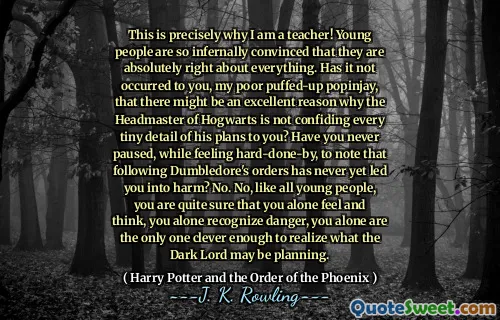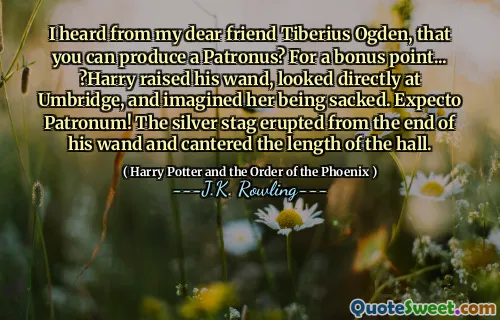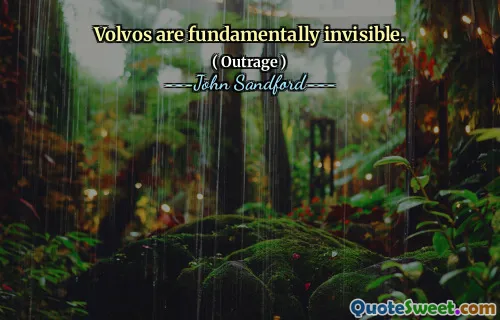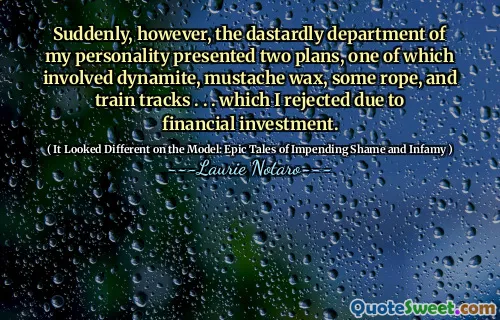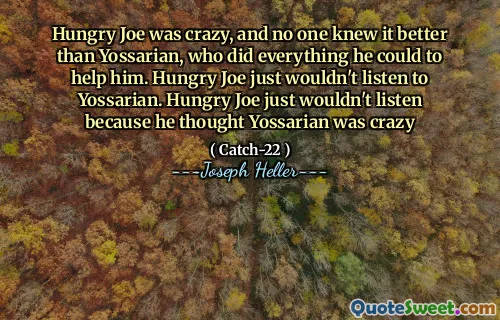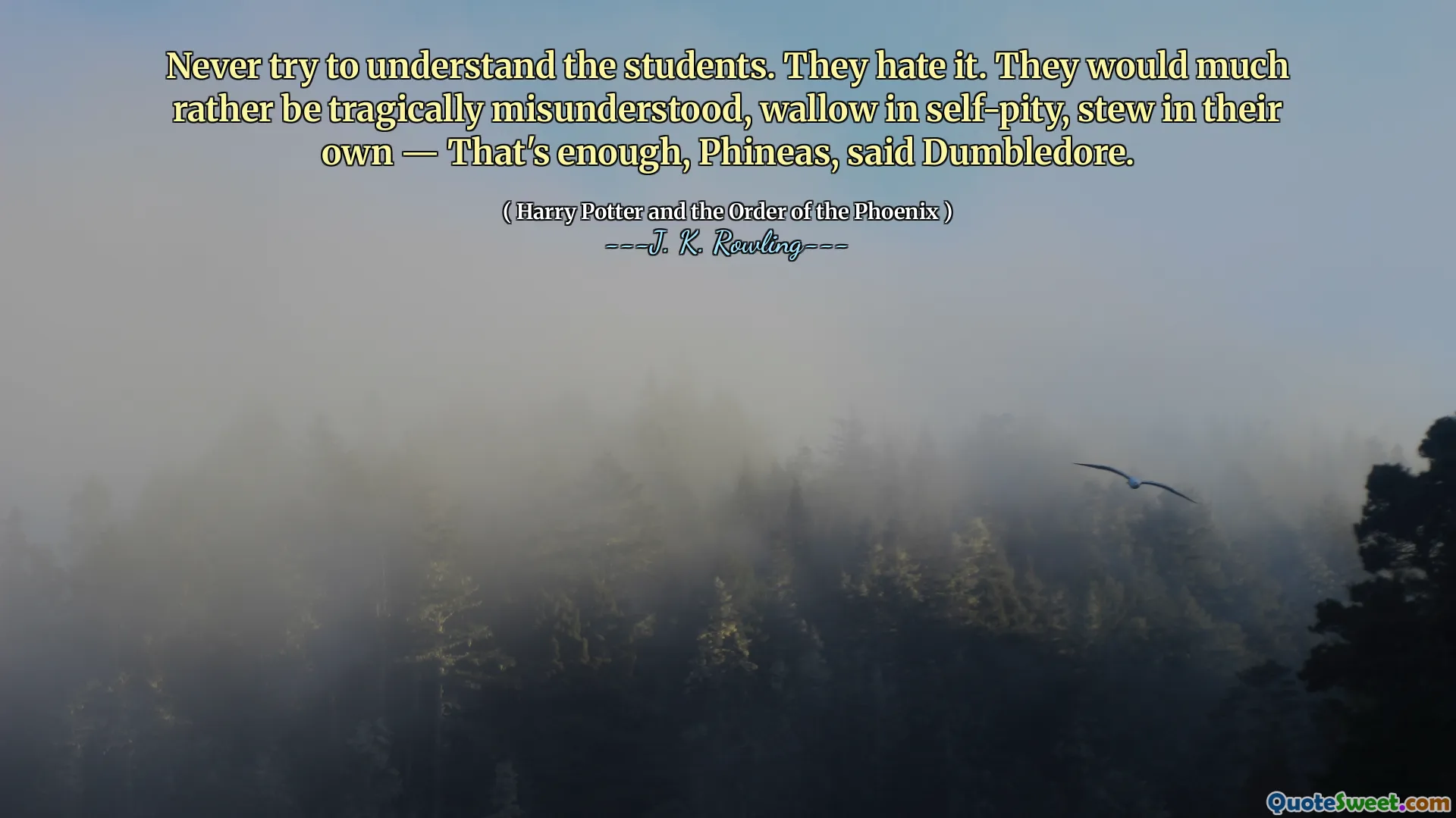
Never try to understand the students. They hate it. They would much rather be tragically misunderstood, wallow in self-pity, stew in their own — That's enough, Phineas, said Dumbledore.
This quote highlights a complex aspect of adolescence and human nature—our innate desire to be misunderstood rather than fully comprehended. When students, or people in general, feel that their inner worlds are opaque or misunderstood, it often fosters feelings of isolation and frustration. Instead of seeking full understanding, many individuals may prefer the illusion of being misunderstood; it grants them a sense of privacy, rebellion, or uniqueness. From a broader perspective, this reflects the tension between genuine empathy and the individual's resistance to vulnerability. Children and teenagers frequently gravitate towards this stance because revealing too much may make them feel exposed or powerless, especially in environments where they fear judgment or rejection. On the other hand, adults and educators often desire to understand students deeply—to connect, to support, to guide—but they can inadvertently cause discomfort by probing too deeply into feelings and thoughts. Paradoxically, this can lead to a defensive stance that resists understanding, thereby creating a delicate balance for those trying to foster genuine relationships. The mention of Phineas and Dumbledore from the Harry Potter series cleverly underscores the moment of human tension between compassion and patience. Dumbledore’s interruption signals a moment of recognizing that some conversations or attempts at understanding must respect boundaries. Ultimately, the quote teaches us that sometimes the best approach is a gentle acceptance of the other's desire for solitude in interpretation, understanding that a person's apparent aloofness may be a complex form of unspoken emotion or self-protection.


